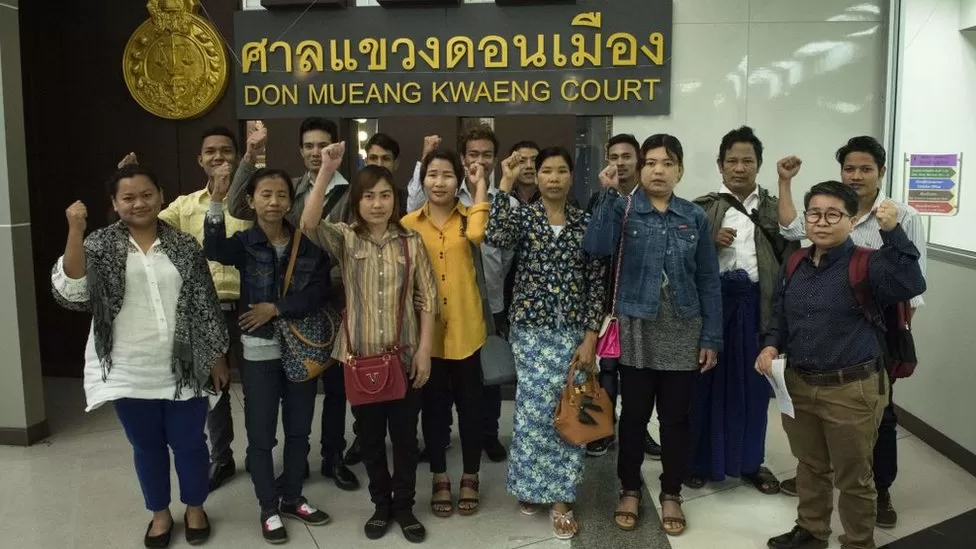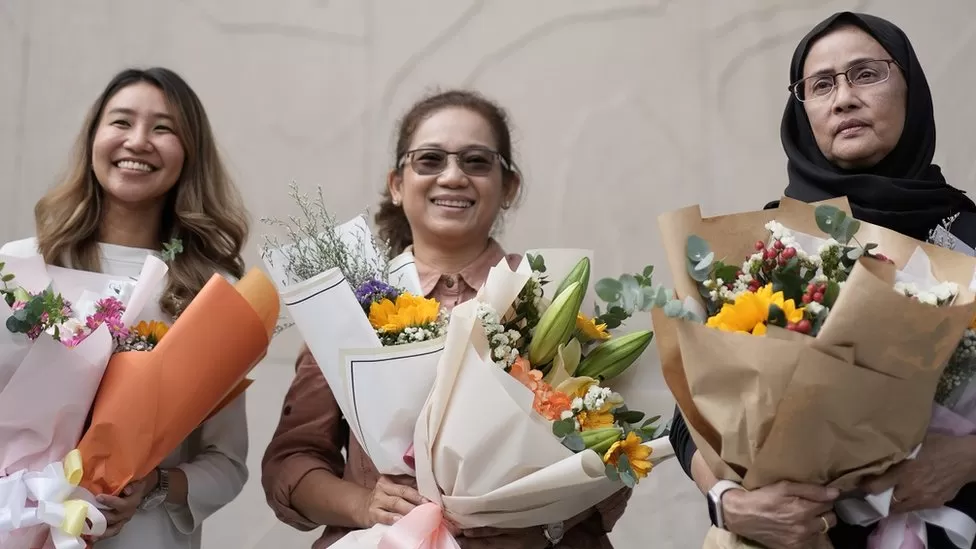BBC 30th August 2023: Thammakaset: Thai poultry farmer loses his 36th defamation suit
Thai Poultry Farmer – The Reality Behind SLAPP or Defamation Cases – Comments by Andy Hall
No one (beyond the sometimes highly paid lawyers prosecuting the cases) ever actually wins from SLAPP or defamation cases like these. The financial, mental and physical costs are very high for all involved. Very sad to see these kinds of cases continuing.
See related articles at: 5th May 2022: Statements against ATA/Dyson related manpower company director in Malaysia not defamatory, says migrant activist Andy Hall facing $US14million defamation lawsuits.
Original article available at: BBC By Jonathan Head BBC News, Bangkok – 30th August 2023.
Thammakaset: Thai poultry farmer loses his 36th defamation suit
Three Thai human rights campaigners have been found not guilty of criminal defamation over social media posts.
Thai poultry farmer/businessman Chanchai Pheamphon accused the women of posting comments in support of others he had sued.
The comments were about the alleged abuse of migrant workers at his chicken processing factories.
Mr Chanchai, has lost all but one of the 37 cases he has filed, a record for Thailand where plaintiffs can sue for defamation quite easily.
He had argued that people reading the campaigners’ posts might be encouraged to go to a 107-second video, made by a human rights group, which he believed had defamed him.
On Tuesday in court, the judge reached his verdict in less than 10 minutes. To find that video people would have to click on several links, he said. He concluded there were no grounds for convicting the defendants.
“I can’t say I am happy with the verdict because I don’t think I did anything wrong from the beginning, and the plaintiff shouldn’t even sue me,” said one of the defendants, Angkhana Neelapaijit, after leaving the court.
A member of Thailand’s National Human Rights Commission, she faced a jail term for up to eight years. She was cleared along with Puttanee Kangkun and Thanaporn Saleelphol.
It took the court nearly four years since the defamation complaint was filed to reach what looks like an almost inevitable verdict. For the defendants it has been a stressful and costly ordeal. Ms Angkhana has been campaigning against injustices since her husband, Somchai, a human rights lawyer, was abducted and disappeared 19 years ago. She has been appointed to the UN Working Group on Enforced or Involuntary Disappearances.
Thailand’s punitive defamation laws have long been criticised for stifling free speech. They have been described by some as a legal blood-sport, used by politicians and businesspeople, in particular against journalists and activists who publish anything negative about them.
“We’ve wasted four years,” Ms Angkhana said. “We’ve spent so much money on hiring lawyers or travelling costs. It’s been such a trauma, it affects my mental [health] and my work. This is something that cannot be measured.
Many countries make defamation – publishing comments judged to damage a person or organisation’s reputation – a criminal offence. But in very few is it used, and abused, as liberally as in Thailand. The human rights group Article 19 says Thai statistics show that 25,000 criminal defamation cases have been filed with the courts since 2015, in what the UN says amounts to judicial harassment.
Under Thai law truth is not a defence in defamation cases. Even if what the defendant has said is demonstrably true, even if the plaintiff admits it is true, the defendant can still be found guilty, unless they can show there is a public interest in publishing.

Plaintiffs do not have to convince the police or a prosecutor to take up the case – they can take their complaint directly to court, at very little cost, and Thai judges almost always take them to trial, regardless of their merits. Defendants must then take on the considerable costs of getting legal representation in cases that might last several years, and these costs are not reimbursed even if they win their case.
This particular case began in 2016 when 14 migrant workers in the Thammakaset chicken processing plant complained that they had been made to work excessively long hours and had their passports withheld. The Thai authorities upheld their complaint and ordered the company to pay the workers 1.7 million baht ($50,000) in compensation. But Mr Chanchai then started filing criminal charges – 37 of them, against 22 individuals, who had commented about the case.
“The cases filed by companies, such as Thammakaset Company Limited, are a clear example of businesses abusing the legal system in order to censor, intimidate, and silence criticism,” says the UN Human Rights Council. “We are deeply concerned that human rights defenders are facing prison sentences and heavy fines for exercising their right to freedom of expression.”
For his part Mr Chanchai says he is only exercising his right to defend his company’s reputation with his epic litigation. He has lost every case but one, and that one case was overturned on appeal.
In a strikingly similar case, a pineapple processing company in southern Thailand filed multiple criminal and civil charges against British labour activist Andy Hall in 2013 over a report he helped research which alleged that the company had mistreated its workers.
The trials and appeals went back and forth, alternately finding Mr Hall guilty and not guilty, sometimes overturning these verdicts, for seven years, eventually forcing the activist to leave Thailand because he said the endless court appearances were preventing him from working.
When asked why he kept going, the elderly owner of the pineapple processing company told the BBC he could not stop because he felt he had lost face.
There have been many appeals made to Thailand by the UN, by human rights groups and by many Western governments, to find a way to curb the number of criminal defamation prosecutions. Quite apart from the damaging impact on people and freedom of expression, these thousands of cases clog up the Thai courts and slow down an already sluggish judicial system even further.
In 2018 the Thai criminal procedure code was amended to allow judges to dismiss similar cases filed repeatedly by the same plaintiff, or which are filed in bad faith. The 37 Thammasaket cases would appear to meet that criteria. The lawyer representing the three women had asked the judge to dismiss their case on these grounds, but he refused. The International Commission of Jurists says it is not aware of any case in which this amendment has been invoked to reject a criminal defamation complaint.


